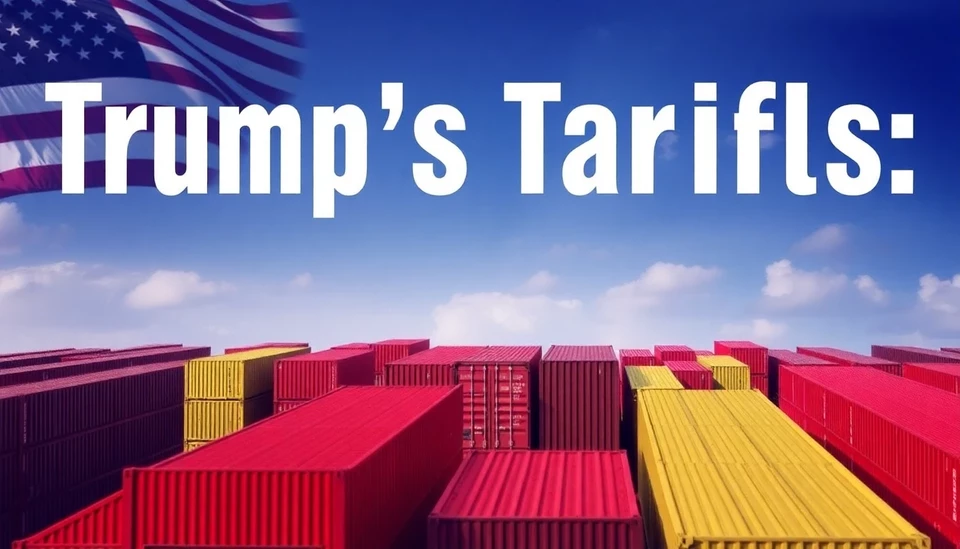
In the latest developments on the global supply chain landscape, the repercussions of former President Donald Trump’s trade wars are coming to the forefront again, particularly impacting relationships with China. Tensions are escalating as stakeholders grapple with the complexities arising from tariffs and shipping mandates that have shifted the dynamics of international trade.
Initially set in motion during his presidency, Trump's trade policies were aimed at curbing what he referred to as unfair practices by China. The imposition of heavy tariffs on Chinese goods was intended to benefit American manufacturing and reduce the trade deficit. However, the reverberations of these policies have proven to be far-reaching, influencing not just the economic relationship between the two nations but also global supply chains.
Recent reports indicate that the introduction of stricter rules regarding the shipping of goods has created a bottleneck effect in logistics, impacting various sectors reliant on timely shipments. The rise in costs, alongside increased shipping times, has led businesses to reevaluate their supply chain strategies, prompting many to seek alternatives outside of China.
One significant outcome of these tensions has been the response from Chinese shipping firms, which have begun adapting to the ongoing challenges of a transformed trade environment. They are actively seeking new markets and adapting their service offerings to maintain competitiveness in the face of reduced demand from American importers. This proactive stance highlights the evolving nature of the shipping industry amid geopolitical shifts.
The ripple effects extend beyond just the U.S.-China relationship, as countries globally feel the pressures of these trade conflicts. As nations scramble to secure critical supplies, the overall reliability of the supply chain has come into question, causing companies to anticipate further disruptions. Economic analysts are urging stakeholders to implement more resilient supply chain strategies that can withstand such geopolitical turbulence.
In anticipation of upcoming negotiations and potential shifts in trade policies, businesses are preparing for a continuous cycle of variability. The prospect of a new round of tariffs or trade restrictions remains a looming possibility, which could further aggravate an already fragile global logistical framework.
As nations monitor the situation closely, the outcomes of these trade wars will likely redefine future trade relationships and economic strategies on a global scale, reaffirming the importance of political decisions in the realm of international commerce.
In conclusion, as the consequences of Trump's trade wars continue to evolve, stakeholders across various industries must adapt to an ever-changing supply landscape. The coming months will be crucial in determining the long-term effects of these trade tensions on global supply chains and economic resilience.
#TradeWars #SupplyChain #China #Trump #GlobalEconomy #Shipping #Logistics #EconomicPolicy
Author: Rachel Greene




